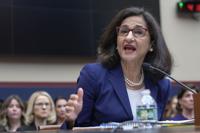SEATTLE - The Puget Sound region has proposed cutting emissions from its biggest greenhouse gas source - the transportation sector.
Public comment on a new Clean Fuel Standard ends Jan. 6.
The Puget Sound Clean Air Agency rule aims to reduce greenhouse gas emissions from transportation by 26% by 2030 in King, Kitsap, Pierce and Snohomish counties.
The agency board proposing the rule is made up of elected officials, including regional mayors and council members.
At a public hearing on it in Seattle last week, Rebecca Ponzio, climate and fossil fuel program director for the Washington Environmental Council, said people came out in the rain to support the rule because they want clean air and more fuel options.
"They appreciate this region taking that issue seriously and that this is something that can be done and should be done to make sure that we are tackling the largest source of climate pollution in our region," she stated.
Transportation accounts for more than 40% of the state's emissions.
Last legislative session, lawmakers shot down a similar fuel standard for the state. The oil and petroleum industries say the costs for the new rule will be passed on to Washingtonians at the pump.
Sarah Cornett, climate program and advocacy manager for Washington Physicians for Social Responsibility, says medical groups, including the Washington Medical Association and Washington Academy of Family Physicians, are getting behind the proposal for its health benefits.
"The health care community is becoming increasingly concerned with the health impacts of climate change and calling on policymakers to take strong action, which we know can both reduce harmful air pollution while also limiting our contributions to climate change," she states. "So we see this as a win-win policy."
The technical analysis for the rule found it could result in health care savings of up to $45 million, due to the avoidance of premature deaths from respiratory distress.
Cornett says this could be a conservative estimate, since it only takes into account particulate pollution and not other toxic air pollutants from tailpipes.









